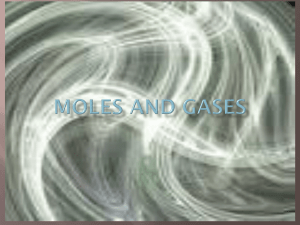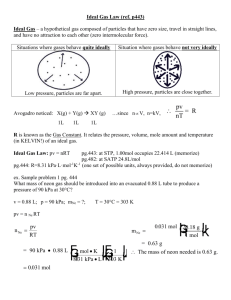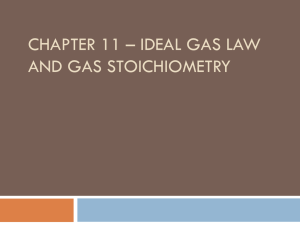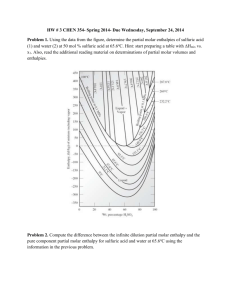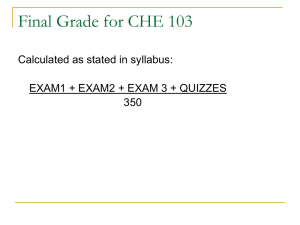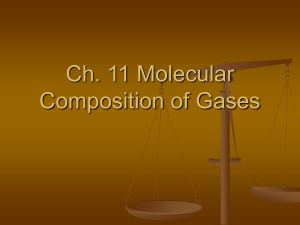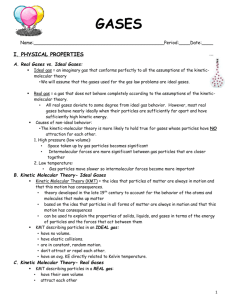Gases WS 5
advertisement
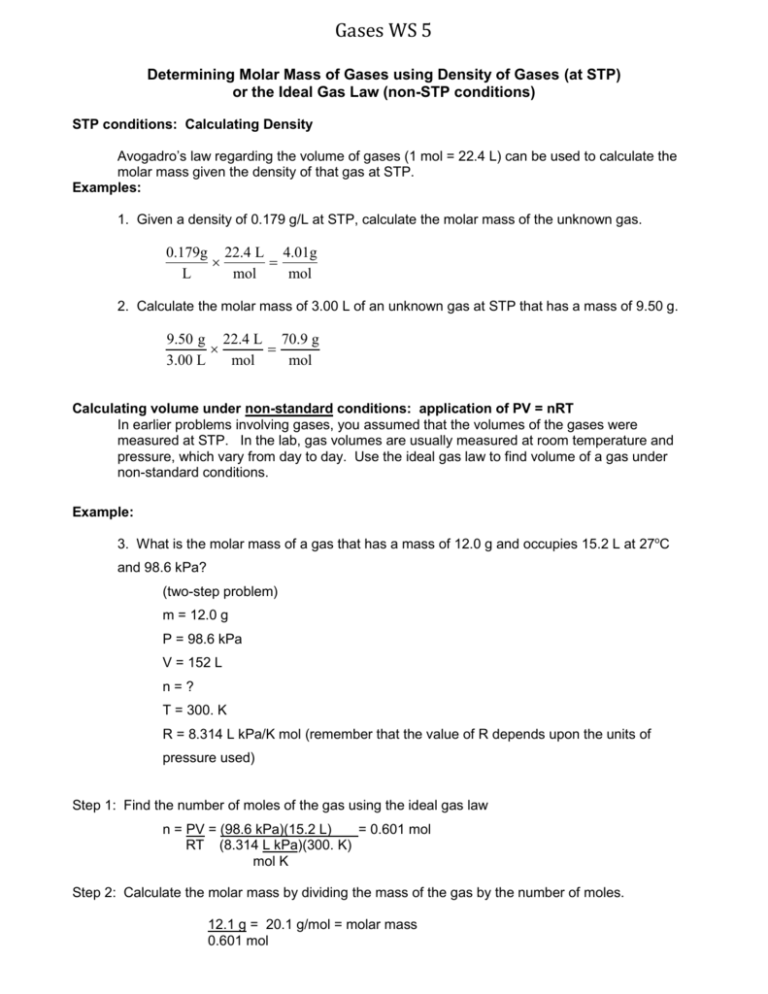
Gases WS 5 Determining Molar Mass of Gases using Density of Gases (at STP) or the Ideal Gas Law (non-STP conditions) STP conditions: Calculating Density Avogadro’s law regarding the volume of gases (1 mol = 22.4 L) can be used to calculate the molar mass given the density of that gas at STP. Examples: 1. Given a density of 0.179 g/L at STP, calculate the molar mass of the unknown gas. 0.179g 22.4 L 4.01g L mol mol 2. Calculate the molar mass of 3.00 L of an unknown gas at STP that has a mass of 9.50 g. 9.50 g 22.4 L 70.9 g 3.00 L mol mol Calculating volume under non-standard conditions: application of PV = nRT In earlier problems involving gases, you assumed that the volumes of the gases were measured at STP. In the lab, gas volumes are usually measured at room temperature and pressure, which vary from day to day. Use the ideal gas law to find volume of a gas under non-standard conditions. Example: 3. What is the molar mass of a gas that has a mass of 12.0 g and occupies 15.2 L at 27oC and 98.6 kPa? (two-step problem) m = 12.0 g P = 98.6 kPa V = 152 L n=? T = 300. K R = 8.314 L kPa/K mol (remember that the value of R depends upon the units of pressure used) Step 1: Find the number of moles of the gas using the ideal gas law n = PV = (98.6 kPa)(15.2 L) = 0.601 mol RT (8.314 L kPa)(300. K) mol K Step 2: Calculate the molar mass by dividing the mass of the gas by the number of moles. 12.1 g = 20.1 g/mol = molar mass 0.601 mol Gases WS 5 Problems: 1. Given the density at STP, calculate the molar mass: a. 1.54 g L (A: 34.5 g/mol) b. 1.69 g L (A: 37.9 g/mol) c. 0.77 g L (A: 17 g/mol) 2. Calculate the molar masses of the following gases under the conditions stated. a. At STP 0.250 L of an unknown gas has a mass of 1.00 g. (A: 89.6 g/mol) b. At STP 150. mL of an unknown gas has a mass of 0.250 g. (A: 37.3 g/mol) 3. Calculate the molar masses of the following gases under the conditions stated (non-STP). a. 132 g of an unknown gas takes up 67.2 L at 202.6 kPa and 273oC (A: 44.0 g/mol) b. 24.0 g of an unknown gas takes up 1.40 x 103 L at -20oC and 9.0 kPa. (A: 4.01 g/mol) c. 0.050 g of an unknown gas takes up 0.041 L at 0oC and 93.3 kPa. (A: 29.4 g/mol)
